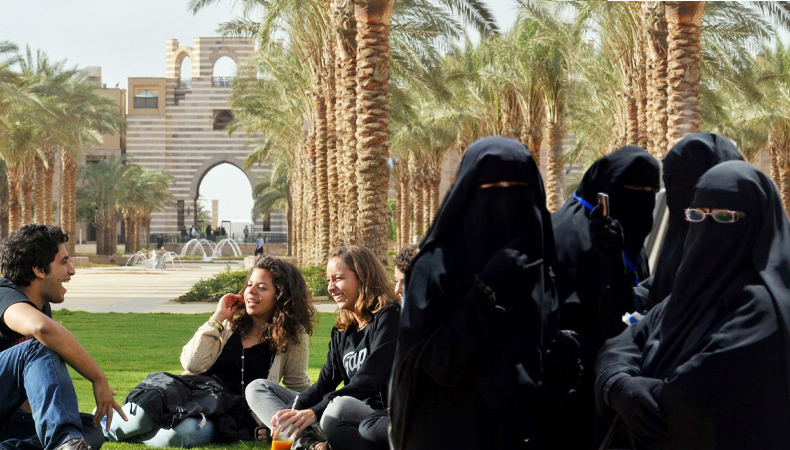Egypt Pushes For Dress Code In Universities Across The Nation

As if the mayhem in Iran wasn’t enough, now Egypt has imposed a new dress code for university going students. The administration is also putting a curb on carrying of weapons.
A number of state universities are now seeking the control of dress code and this is already receiving criticism from human rights activists. Moral policing is becoming a norm in many Middle Eastern countries that tend to impose restriction on women, in the guise of Islam and its religious practices.
Taliban were known for their brutal acts of chopping legs, arms, hands and feet of women should they be exposed from under their conventional burqas. The practice has altered for a bit but the control on the movement, thinking and expression of women continues unbated.
Egypt also seems to be moving towards similar lines as it also imposes restriction on music, smoking or drinking within university premises.
Read | Egyptian Release Political Prisoners Without Trial
Signs with the dress code have started to already appear outside universities much before the new academic session kicks in on October 02. These signs were swiftly photographed by students and posted on social media. The rules include bans on clothes that are “too tight” and ripped, as well as distressed and see-through garments of any kind. Shorts, flip-flops and leggings have also been banned.
The new regulations also outlawed galabeyas, a loose-fitting, one-piece garment traditionally worn by farmers in Egypt’s agricultural provinces. The new academic year will also bring about many other restrictions like stricter controls on students bringing in weapons of any kind on to the campus. Flares and fireworks have also been banned.
Most university deans believe that diversified educational groups are leading to them forcing a certain kind of dress code. This is obviously not going down well with grownup students who experiment with their looks at this stage of their lives, when they are still discovering their limits. Boundaries have still not been defined in their minds for them.
What is also in debate is abnormal sex mixing in campuses where romantic advances when rejected have been met with violence leading to personal harm and attack as well.
Many women activists have complaint that men are not being asked to curtail their behaviour, a point of concern which continues to haunt the lives of girls and women in Middle Eastern countries.




